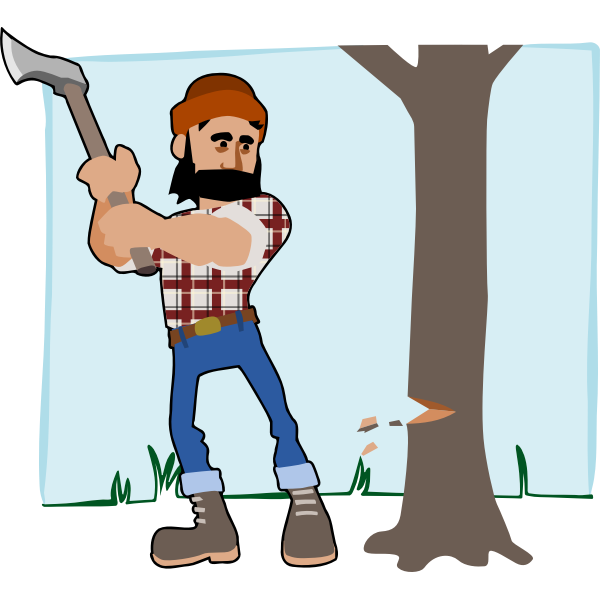
And now also the axe is laid unto the root of the trees: every tree therefore which bringeth not forth good fruit is hewn down, and cast into the fire. (John the Baptist in Luke 3:9)
Luke 3:7–17, John takes an ax to the tree of religious pride. What’s really going on in this exchange between John the Baptist and the religious folks of his day? Let’s step back and look at the bigger picture.
YHVH sent John to prepare the way for Yeshua the Messiah. As if he had a giant ax in his hand (Luke 3:9), his preaching was aimed at chopping down the tree of human pride, misdirected religious zeal and lack of love for one’s neighbor of which these Torah-obedient Judeans were guilty. John spared no words in forcefully commanding them to repent of their sins.
In our day as we await the second coming of our beloved Messiah, are many of us not guilt of the same sins as those who went out to hear John the Baptist’s preaching? How many of us have unknowingly exchanged our love for Yeshua and his gospel message, and a love for our neighbor for a self-righteous and legalistic Torah-obedience along with a devotion for rituals and traditions of men? How many of us are proud of our obedience, while sneering at those who aren’t walking in the light of Truth that we have? How many of us would rather argue, split and divide over doctrine rather than reach out to a lost and hurting persons regardless of his or her beliefs. What does John have to say about this? Let’s hold up the same mirror of the Word and heart of Elohim into which John forced the people of his day to look to see what we really look like. Then let’s ask ourself the following question: is this the bride that Yeshua the Messiah really wants to come back for?
The multitudes of Jews had to make the long, hot and arduous journey through the Judean mountains down to the Jordan River, which was the lowest spot on earth, to hear John the Baptist, who was the latest fad preacher to come on the scene. However, when they arrived at his lonely wilderness pulpit, instead of stroking their egos by complimenting them for their religious zeal, he excoriates them and calls them a brood of vipers. John confronts them by saying that if they don’t repent, the fires of YHVH’s judgment will consume them (John 3:7–9). John’s preaching pierces their hearts, and lays them low spiritually. In a proper response, they ask him what he expects them to do (John 3:10). John then preaches a message of social justice involving giving to the poor, being fair and honest in one’s business dealings, and if one is a government worker, then treat the citizens one serves with respect (John 3:11–14).
Continue reading


